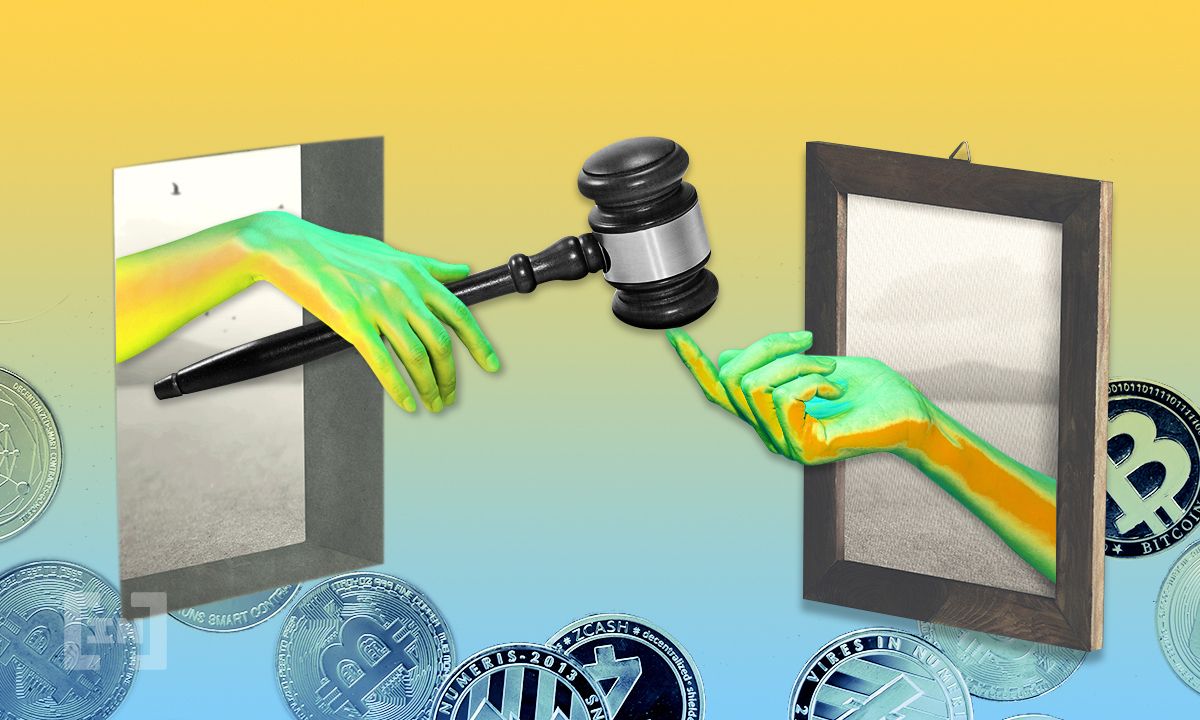Over two years ago, Bitwise Asset Management made bold accusations of just how much trading volume on crypto exchanges were fake — 95%, according to their research.
The Tie followed this up with its research suggesting that, outside of the few well-established names in the sector like Gemini, Coinbase, and Binance, most other platforms furnished falsified trading volume data to aggregators to present themselves as an active platform for trading.
Then a strange thing happened. Those named and shamed failed to come out to contest the findings or issue statements denying their accuracy. Some virtually confessed to having knowledge of fraudulent trading activity on their platforms.
OKEx, one of the 73 exchanges condemned by Bitwise, financial director Lennix Lai, when questioned about such practices on their platform, admitted:
“We would acknowledge that […] it takes time to build volume and one of the easiest ways, especially for some of the Chinese traders, is to wash trade some of the more illiquid pairs.”
Frankly speaking, the fact that the Bitwise report and revelations didn’t raise many eyebrows in some circles suggested that data manipulation in the industry wasn’t news after all.
Centralized exchanges guilty as not charged
Last week, the US Commodity Futures Trading Commission (CFTC) slapped a $6.5 million fine on Coinbase for “reckless false reporting and wash trading”. Unlike OKEx, who blamed retail Chinese traders, it was an employee responsible for the misdeeds on Coinbase.
This follows an $18 million settlement last month between Tether/Bitfinex and the NY Attorney General for its role in providing false data and covering up missing funds, misleading their investors on the true risk they faced on the crypto exchange.
Here’s the kicker.
Both Coinbase and Bitfinex were two of the ten-odd exchanges identified as good actors not guilty of wash trading and false trading volumes, at least, according to both Bitwise and The Tie, whose damning studies formed at least part of the basis for formal investigations into some of these crypto exchanges.
What’s important to note here is that this isn’t a turning point for centralized exchanges. These events were only the latest exchanges to have fallen foul of regulators for their roles in manipulation of trading markets.
Since Mt. Gox’s seismic demise in 2014, the crypto world has seen exchange after exchange tangling with authorities and regulators on account of mismanagement, negligence, and downright trading malpractice.
Coinbase and Bitfinex may get away with a slap on the wrist, but many others won’t, like Canadian exchange Coinsquare that didn’t even survive a wash trading scandal masterminded by their execs. The execs resigned and the exchange closed down in 2020, after paying a $1.7 million fine.
Consequences for investors and customers
The somber reality is that the full consequences of these events have always been borne by customers and investors.
The financial ruin from the mismanagement of Mt. Gox was staggering — tens of millions of dollars that until today remain locked in a limbo of legal wrangling.
It wasn’t the last exchange to lose customer money in Japan, as BitPoint had lost $32 million in an alleged hack in 2019. From hacks alone, usually due to employee negligence, hundreds of millions of dollars have been lost, with few cases of customer compensation.
Even customers not necessarily affected by hacks of losses have sometimes shared the burden of compensation, with exchanges like Bitfinex known to spread losses to all customer accounts in a practice dubbed “socialized losses.”
The problem of vague regulations can also be an issue, as in the case of Brazil, where exchange operators have been going to court with banks since mid-2020, with some closing down and clients unable to access funds.
But other non-financial consequences have not been less severe.
Over 14,000 Coinbase users in 2017 will remember the “John Doe summons” from the IRS that made them realize just how vulnerable their personal information was when stored with a centralized exchange.
A California federal court then ordered Coinbase to turn over identifying records for users who met certain trading threshold requirements, including their name, birth date, address, and taxpayer ID, along with records of all account activity and any associated account statements.
Given the poor security surrounding exchange funds, it’s of little surprise that identity and data leaks also happen with crypto exchanges. Binance denied its “KYC leak” in 2019 was even legitimate, but the data breaches of other exchanges like Coincheck, Coinsquare, and BuyUCoin have exposed information of hundreds of thousands of crypto exchange users.
A safer haven on decentralized exchanges?
When decentralized exchanges, or DEXs, first appeared between 2014 and 2016, they proposed doing away with the middlemen that were the companies and platforms running centralized exchanges.
Only, it didn’t quite work out due to several reasons:
- a lack of liquidity that prevented trades;
- a high technical learning curve that made it difficult to use easily;
- and a general lack of safety measures to prevent traders from falling straight into scam traps like buying fake assets or triggering malicious contracts that drained wallets.
But as the collection of decentralized protocols matured in 2019, and as centralized exchanges continued their fumbles with regulators and hackers, it became easier to enjoy the advantages that DEXs had over their centralized counterparts.
The clearest benefit was that DEXs never needed access to trader funds, as users only needed to connect wallets to front-ends, without the need to deposit funds on a DEX.
This meant that there was little risk of hacks that would steal wallet balances unlike on a centralized exchange. It also wasn’t possible to be an unwilling participant in a “socialized loss” event.
In the examples of Uniswap, Sushiswap, and PlasmaSwap, traders only need to connect any web 3.0 wallet and authorize a transaction if they wish to conduct a swap. Otherwise, funds never leave traders’ wallets.
In terms of personal privacy, DEXs win hands down. In most cases, like with DEX aggregators PlasmaFinance and Matcha, there’s not even an option to create user accounts. No names, no email address, not even so much as a username or account number. The only identifying piece of information traders will ever leave behind is their wallet address.
There are other benefits to speak of. Some are technological (for instance, blockchain cryptography is arguably superior to encryption security on centralized databases) and others are ideological (DEXs tap into actual independent on-chain data, as opposed to centralized exchange data, feeds vulnerable to manipulation).
But the obvious benefits in terms of protection of funds and personal data are beginning to make more sense these days, in light of the numerous problems faced by centralized exchanges in those areas.
This isn’t to say that DEXs or AMMs are the definitive solution for everyone and all types of crypto traders.
Perhaps for some, the assurance of a government-backed deposit guarantee or full insurance coverage, such as is the requirement for licensed crypto exchanges in Japan today, is the preference over sole custody of their crypto assets.
And perhaps as crypto gains acceptance in the traditional finance and banking world, KYC and due diligence cannot be foregone, and until blockchain technology finds a working compromise between regulatory compliance and personal privacy, more secure storage and protection of personal data must be implemented.
But for now, where centralized exchanges have failed to protect funds and personal data, the non-custodial and accountless nature of decentralized exchanges beckon the disenfranchised crypto trader.
Disclaimer
In compliance with the Trust Project guidelines, this opinion article presents the author’s perspective and may not necessarily reflect the views of BeInCrypto. BeInCrypto remains committed to transparent reporting and upholding the highest standards of journalism. Readers are advised to verify information independently and consult with a professional before making decisions based on this content. Please note that our Terms and Conditions, Privacy Policy, and Disclaimers have been updated.


